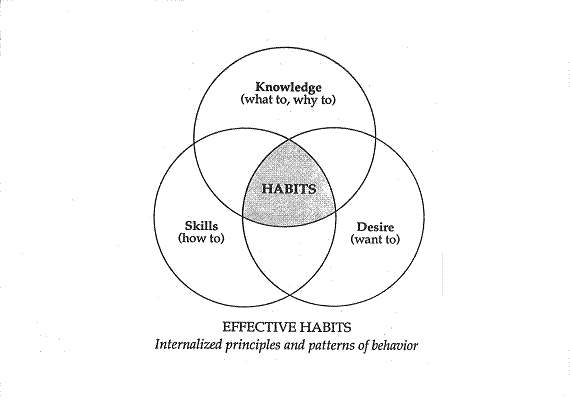I recently finished reading a book called Atomic Habits by James Clear. This scribe recommends it to all readers, regardless of age, gender, social status, or educational background. It contains life-defining statements and suggestions. One chapter explores the dilemma of what drives what first-habit or identity-and analyses which precedes the other. Taking a cue from Clear, this piece is inspired by that very debate. Based on my experience and observation, I will attempt to untangle this juxtaposition.
A habit is a repeated practice of thought and action. Once acquired, it becomes cemented and, over time, unbreakable. We are all victims of our habits. Our submission to them often stems from a lack of clarity about the identity we wish to build.
There is no greater influence on us than that of our habits. Aristotle said, Quality is not an act; it is a habit. My small addition is this: attitude is not a one-off positioning; it must become a positive habit. Inherently positive habits must be nurtured until they emerge as core aspects of one’s identity. Will Durant echoed this sentiment: We are what we repeatedly do. Excellence, then, is not an act but a habit.
Habits can be good or bad. Adopting good habits-like observing discipline-builds a persona that reflects courage in decisions and actions. Inculcating good habits into all facets of life can embed them deeply into one’s character.
Managers and leaders who pursue targets as a sign of accomplishment are driven each year to outperform the last, making success-defined as exceeding expectations-a consistent habit. The identity of such organisations is one of sustainable profitability. Changing behaviours becomes a deliberate effort: to adopt a new habit, abandon a harmful one, or modify an existing one.
An appropriate emotional quotient in leaders or organisations fosters habits aligned with helping others or, at the very least, committing no harm-especially to colleagues. Habits rooted in empathy are like muscles: they grow stronger with practice. Institutions that exercise such habits earn the identity of being ‘caring’.
Sustained habits become automatic responses to recurring situations. A passage reads: If you create an act, you create a habit. If you create a habit, you create a character. If you create a character, you create destiny. Character and conduct together shape our identity.
Habit can be either the best of servants or the worst of masters. The age-old proverb, As you sow, so shall you reap, remains apt. Actions become habits; habits form character, and character shapes destiny-depending on whether our actions stem from positive or negative intent.
Leaders known for their good character-essentially their identity-usually exhibit key traits: kindness, honesty, humility, knowledge, integrity, and accountability. These attributes are not arbitrary; they arise from consistent behaviour. A ruthless person cannot simultaneously be kind; an arrogant one cannot be humble. Identity demands testimony in action. If actions betray claims, they expose flaws in personality.
No one should waste time waiting for the ‘right’ moment to change for the better. James Clear writes, When scientists analyse people with tremendous self-control, they find these individuals aren’t so different from others. Instead, they’re better at structuring their lives in ways that don’t require heroic willpower. We shape our own identities.
Identity is the storyboard of our lives-how others perceive us. Our actions must align with it. If one wants to be known as an author, one must write. To be seen as a singer, one must practise and perform. Our habits-our actions-build our identity.
Someone who is short and stout cannot claim the identity of being tall and slim. Most of us seek a unique identity. Society expects us to demonstrate a good, positive, and distinguishable identity. Lineage, race, religion, language-these and other factors contribute to our sense of self. We must be clear about what our identity is. It’s vital to pursuing our creative and professional goals.
As stewards of human capital, leaders must foster habits that build a positive market identity. Habits precede identity. Once established, they shape real character. We can only shape habits if we permit changes in behaviour.
Our roots lend us identity. Noble parentage offers a positive legacy; ignoble roots can hinder us. For instance, someone wishing to be seen as a prudent spender cannot indulge in compulsive buying. The habit and identity remain mismatched.
Identities stem from our actions-especially those repeated over time. Reputation is what others think of us; character is what we believe about ourselves. Our character must reflect our identity. Actions and identity must remain aligned. Any dissonance damages both reputation and character irrevocably.
Provided by SyndiGate Media Inc. (
Syndigate.info
).







